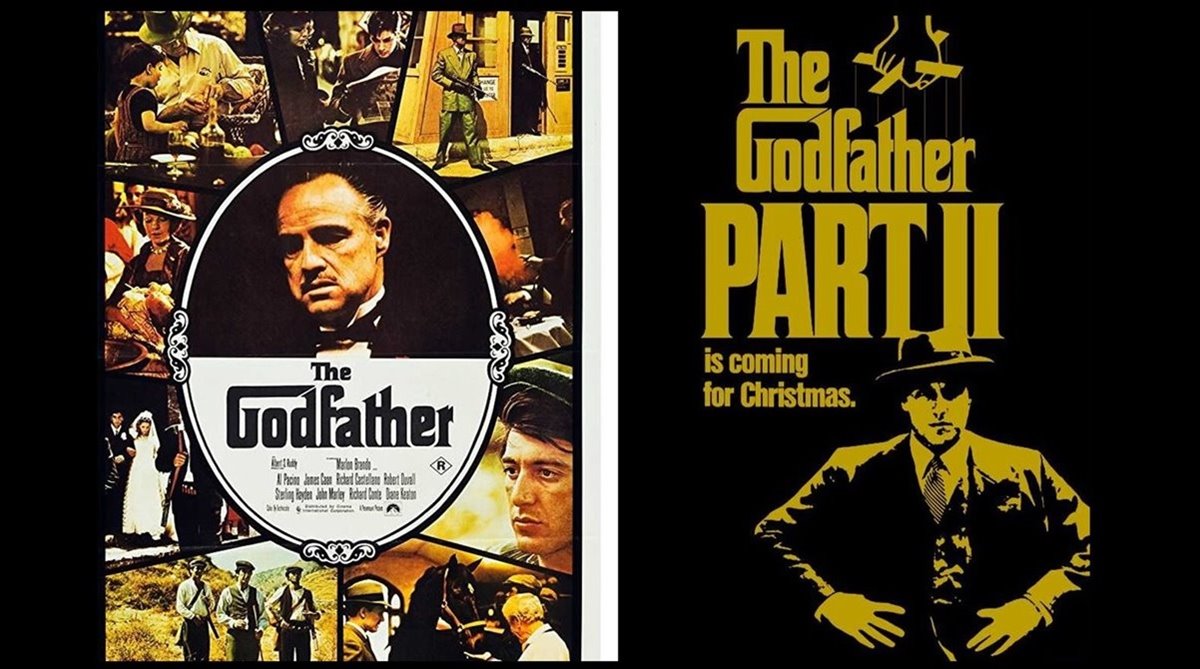‘Chinatown’, ‘Godfather’ producer Robert Evans no more
Evans seemed to epitomize Hollywood excesses with his seven marriages, outspoken nature and freewheeling lifestyle that he documented in his 1994 memoir The Kid Stays in the Picture.
The movie The Godfather has many lessons to teach us. Rhea Banerjee, a Class XI student of The Levelfield School, Suri, explores how the movie can help us understand the successes and failures of the famed Mughal Empire in India.

(Photo: IMDb)
The Godfather shows us the two ways of ruling, in the form of the leadership of Vito Corleone and Michael Corleone, the heads of the most powerful Mafia family in the city of New York.
The Godfather Part I shows the ageing patriarch pass over the reins of control to his son Michael. The Godfather Part II alternates between flashbacks from Vito’s young life and his rise to power, and Michael as he expands and tightens his hold on the empire.
Advertisement
In the first film, Vito Corleone is portrayed not as a gangster, but as a reasonable man who values friendship and loyalty over money and power. We see him refusing to deal with narcotics, saying drugs are a dirty business. We see him refusing to murder for money because he thinks it is unjust. We see him as a man with conscience and empathy.
Advertisement
Michael, on the other hand, starts out as a civilian who wants no part in the family business. He appears to detest his father for what he does and chooses instead to join the military. But, in the end, we see him becoming a man without conscience.
READ | Happy birthday Al Pacino: A legacy that can never be replaced
He lacks the self confidence that Vito had, and that makes him terrified of threats to him and his position. Vito would win people over by using persuasion instead of threat, ending any chance of disloyalty even before there was any. However, Michael lived in a state of paranoia, suspecting everyone, trusting no one, and always looking for traitors in the shadows. He cannot tolerate disloyalty, and ends up killing his brother Fredo, divorcing his wife Kay, and suspecting the closest person to a friend he ever had, Tom Hagen. He acquires unimaginable wealth and power, but becomes an empty shell, alienating everyone.
What makes The Godfather a great movie is that it not only a story, it also has many parallels in history. We can see parallels of the movie in the Mughal empire. Akbar, greatly renowned for his magnanimity, had a close resemblance with Vito. Vito practiced the motto, ‘Keep your friends close, but your enemies closer’. Akbar too would forge alliances with potential rivals, winning the war without ever stepping on to the battlefield.
Michael, on the other hand, was more similar to the Emperor Aurangzeb. Both Michael and Aurangzeb would make enemies out of everyone until they could trust nobody, somehow holding their empires together with sheer force of their personality.
Akbar and Vito had both left behind empires that could be built on. Aurangzeb and Michael had expanded their empires, conquering new territories, but in doing so, stirred so much discontent that their position became untenable. When it was time for power to change hands, the pent-up discontent would surface and the empire would fall to pieces. When they passed away, their empires passed away with them.
This movie shows the transition of a man from an idealist who believed whatever his family did was wrong to a man who becomes insecure and ruthless, not hesitating to punish even the closest of friends and family. It shows the decline of an empire as the stack-up of deaths are piled together. The movie’s final scene shows Michael sitting alone, remembering the old times that were forever lost.
Advertisement